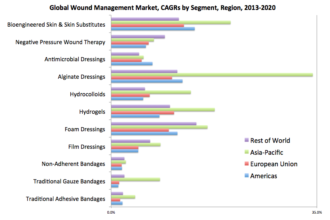Each day, in the U.S. alone, over 4000 more people are diagnosed with cancer. In 2010, there were 13.8 million cancer survivors alive and some 18.1 million people in the U.S. are expected to be living with cancer by 2020 (Journal of the National Cancer Institute).
Each day, in the U.S. alone, over 4000 more people are diagnosed with cancer. In 2010, there were 13.8 million cancer survivors alive and some 18.1 million people in the U.S. are expected to be living with cancer by 2020 (Journal of the National Cancer Institute).
Of the nation’s 10 most expensive medical conditions, cancer is the highest per-person price medical condition. Medicare data and other sources show that in 2010, care for the 16 most common types of cancers in U.S. women and 13 common types of cancers in U.S. men costs the healthcare system $124.6 billion.
Correlating Cost Increases and Survival Rates:
With the escalating cost of living with cancer and the increase in cancer survivors, technologies and services are evolving to help individuals live with cancer longer, happier, and cheaper. Cancer is becoming an area of focus for payers to lower the cost of care and improve patient outcomes.
Health plans have begun pilot programs with Biological Management Companies (BMCs) to assist in oncology treatment. The traditional oncology medication management approaches are evolving and payers are looking to reduce inappropriate drug utilizations and inefficiencies in distribution without impacting quality.
According to market research company HIRC, two-thirds of plans will have clinical pathways for high incidence cancer conditions by 2012. There are numerous payers currently piloting with BMCs to help develop decision tools, medication management, and physician reimbursement schemes. A few recent pilots include:
- Aetna with US Oncology and P4 Healthcare
- BCBS of Florida and Coventry with iCore Healthcare
- BCBS of NJ with Via Oncology / PathForward
- CoreSource and Employee Benefit Management Corp with Biologics
- Highmark and AmeriHealth with P4 Healthcare
- Humana with New Century Health
Payers aren’t the only ones concerned about cancer costs. Employers rated cancer as the number one specialty area of concern in a recent survey by HIRC. Specialty Pharmacy Programs for the management of oncology medications continue to rise with 60% expecting to use them by 2015. Specialty pharmacy providers (SPPs) have begun to offer oncology-specific services, including oversight of distribution and tighter management of supportive care products.
As payers and employers continue to form strategies and evolve payment methodologies for cancer, healthcare IT companies are making their bets on this high cost area:
- In late 2010, McKesson acquired US Oncology Holdings, a services, resources, and tools for cancer care delivery system for more than $2 billion.
- Following McKesson, in September 2011 AmerisourceBergen acquired IntrinsiQ, a medical data and business analysis solutions for the oncology market for $35m
The potential costs continue to escalate with direct cancer care expenditures expected to reach $158 billion in 2020. We are continuing to watch this market as new players emerge and global healthcare services and technology vendors seek to lower cost and improve outcomes for cancer patients.
Let us know what you think!
Joanna Roth
![]() Joanna Roth is a Senior Analyst at TripleTree covering the healthcare and technology industry, specializing in education solutions. Follow Joanna on Twitter or e-mail her at jroth@triple-tree.com.
Joanna Roth is a Senior Analyst at TripleTree covering the healthcare and technology industry, specializing in education solutions. Follow Joanna on Twitter or e-mail her at jroth@triple-tree.com.







